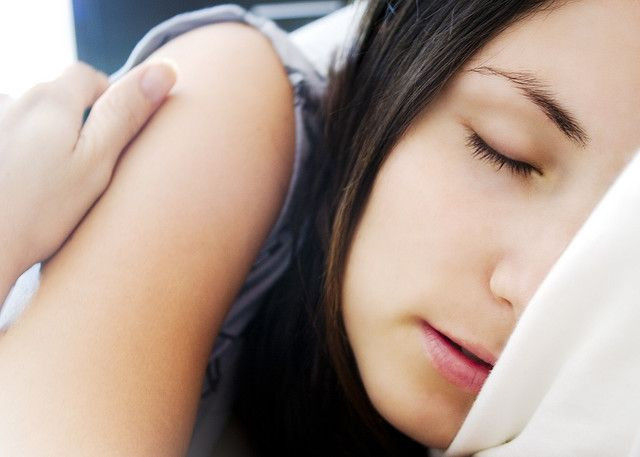Adult Insomnia May Stem From Fear of Darkness

If you've been suffering from poor sleep and insomnia, you may be afraid of the dark, according to new research.
The new findings presented today at the Associated Professional Sleep Societies annual meeting in Boston are the first to suggest that a fear of darkness can lead to sleep disturbances and problems sleeping in some adults.
In a small study, researchers measured blink responses to unexpected bursts of sound in light and dark surroundings in nearly 100 college students who were either good sleepers or poor sleepers and found surprising results.
While good sleepers gradually became accustomed to the sound disturbances, poor sleepers became even more stressed and startled by the unexpected noises.
Furthermore, anxiety levels in poor sleepers appeared to be dramatically magnified when the exposed to a sudden burst of sound when the lights were turned off.
"The poor sleepers were more easily startled in the dark compared with the good sleepers," lead author Taryn Moss said in a statement. "As treatment providers, we assume that poor sleepers become tense when the lights go out because they associate the bed with being unable to sleep. Now we're wondering how many people actually have an active and untreated phobia."
Researchers also surveyed participants and found that almost twice as many poor sleepers admit to being afraid of the dark at 46 percent, compared to 26 percent of good sleepers admitting the same fear.
Dr. Colleen Carney, principle investigator of the study and director of the Ryeson University sleep and depression laboratory said that many adult patients often have behaviors that are similar to children who are afraid of the dark, reporting only being able to sleep if the television or bathroom light was turned on, according to ABC News.
Carney said that even though insomnia treatments are usually highly effective, not everyone responds or completely recovers, and she stressed that new treatment approaches are needed.
While the most effective insomnia treatments encourage people to do something else away from the bedroom before reattempting sleep, Carney said this treatment may not work for someone trying to get over their phobia of the dark because turning the light back on may just make them feel more awake.
"We may need to add treatment components for these patients and adapt existing treatment components in light of the phobia," Carney said in a statement. "A lot more research is needed, but we believe we have stumbled across an unmet treatment need for some poor sleepers."



























